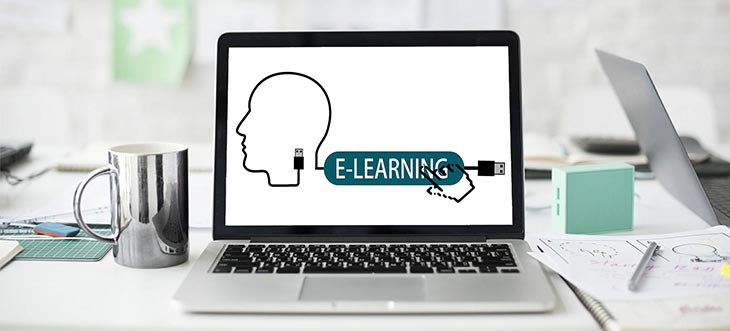 Personal data is the new oil, and e-learning privacy issues should be at the top of every parent’s mind. Because believe it or not, we may already be in a world where your child’s elementary school record could hamstring their post-college job search.
Personal data is the new oil, and e-learning privacy issues should be at the top of every parent’s mind. Because believe it or not, we may already be in a world where your child’s elementary school record could hamstring their post-college job search.
E-Learning Privacy: The Current Landscape
Even before the coronavirus crash-landed, affluent schools across the country were waist-deep in e-learning products and platforms. Some of the programs facilitated classroom learning, others served as a bridge between home and school, and a third crop was controversial monitoring systems (link).
But now that we’re living in a COVID-19 world, remote learning is the new norm for everyone. Public school learning is moved online. Even schools opening in the fall are implementing truncated schedules, and students will log in from home half the time.
Some people find the shift worrying, and privacy advocates are asking questions about use and security. Who can access all this student data? What are they doing with it? Are the platform’s servers secure? Are there disadvantages of online learning? What happens to student data when the school term ends? What other e-learning privacy issues are we not even thinking about?
Selling Student Data For Profit
Many parents don’t realize that some of these e-learning platforms may be collecting, selling, and sharing their kids’ information.
Most e-learning companies insist they’re “currently not selling or sharing student data,” or they commit to not “sharing or selling information at any point during a child’s student years.” But that’s not the whole story. Some of these operations have plans to profit off the data by partnering with marketing firms or selling it at a later date.
And it’s not just privacy advocates who are concerned about the accumulation of student data. In 2018, the FBI issued a public warning about the amount of personal information scooped up by educational technology software — including medical, behavioral, biometric, and academic — that’s linked to student addresses, names, emails, and phone numbers.
For their part, educational-technology companies swear they’re adhering to stringent e-learning privacy standards. Canvas, a stateside firm in the field, is emerging as an industry test case regarding its commitment to protecting student data.
Canvas attracted attention and triggered an alarm awhile back when then-CEO Dan Goldsmith said of his company’s products:
We have the most comprehensive database on the educational experience in the globe. So given that information that we have, no one else has those data assets at their fingertips to be able to develop those algorithms and predictive models.
Goldsmith’s speech set tongues wagging. What did he mean by “predictive models”? And how would the company profit off predictive models and algorithms using student data?
Using K-College Student Profiles: A Mistake at 8 Could Cost Your Kid a Job at 22
How do e-learning companies make money? Subscription fees and service contracts play a role. But experts insist their real value lies in the selling and sharing of collected student data.
Buyers are mostly companies and brands with services and products to sell. These third parties aren’t necessarily interested in contacting school-aged kids, but they pay top dollar for comprehensive digital surveillance data on 23-year-old new adults, which spans from kindergarten to college.
But there’s another set of potential buyers: employers. And who do you think human resources will pick for the job: the person with a sterling “permanent record,” or the candidate whose background is littered with juvenile missteps and behavioral problems?
Let’s walk through this with a hypothetical example.
The Sad Story of “John”: An E-learning Privacy Warning Tale
Imagine a boy named “John.” In second grade, his dad unexpectedly dies, and his mom moves the family from City-A to City-B to be closer to her parents, who can help with childcare. John loved City-A, where he had friends and felt comfortable. But City-B is very different, and John has trouble fitting into his new school, especially since he’s struggling with the death of his father. Frustrated by the change, his grades drop, and he struggles through various emotional mazes.
Things only improve slightly for John during his middle-school and high-school years in City-B, but he manages to graduate high school and attends a community college. In his first year, John discovers that he loves computer programming and throws himself into his studies. After two years, he transfers to a four-year state school and eventually graduates with a computer science degree.
Fast-forward to an HR meeting at Acme Computing. They have room for one more new employee; it’s between John and another candidate named Pat. Both graduated in the middle of their college classes, and both completed comparable internships. The only difference is John’s childhood behavioral problems. Since Acme Computing prefers to work with new employees they can mold, they assume, based on John’s background record, that he’d be difficult and pick Pat for the position instead.
The same scenario plagues John throughout his job search; eventually, he must lower his standards — even though he’s more than qualified for a better job — all because of understandable childhood difficulties.
It may sound outrageous at first, but in a world with unchecked surveillance data access that spans a person’s student life, it’s a real possibility.
What Other Companies Are E-Learning Privacy Advocates Watching?
Like many folks, e-learning market analysts and privacy advocates have their radars set on Facebook. The tech company’s Oculus virtual reality arm has branched into education, and people are worried since privacy isn’t Facebook’s forte. The data culled from Oculus could prove especially sensitive because VR is an emotional and physiological experience.
Zoom
Since COVID-19 ushered Zoom into the spotlight, stories of the platform’s potential hack appeal also got attention. Notably, the platform’s default settings aren’t secure. In 2018, Apple removed the app from its store, for a bit, when hackers discovered a camera-hijacking glitch.
Thoma Bravo
The San Francisco-based private equity firm is gobbling up educational technology businesses. According to the fund’s current managing director, Holden Spaht, they “do not — and…will not — sell student data.” He’s also promised that Thoma Bravo “will never share user data with other companies in the Thoma Bravo portfolio.
And all that very well may be accurate. But the statement also leaves room for other profit-generating options. After all, not selling student data doesn’t isn’t the same as selling graduates’ data. Spaht also spoke of not sharing user data with other companies in the Thoma Bravo portfolio, but he didn’t mention companies outside of it.
Connect With a Tech Business Consultant About an E-Learning Issue
Do you have questions about the e-learning privacy landscape? I ran an Internet law practice for a decade and am deeply versed in various aspects in the field, including attendant regulations, potential profit streams, and pitfalls, in addition to insight into public concerns and challenges faced by many e-learning startups.
If you’re searching for an e-learning business consultant, get in touch today.







